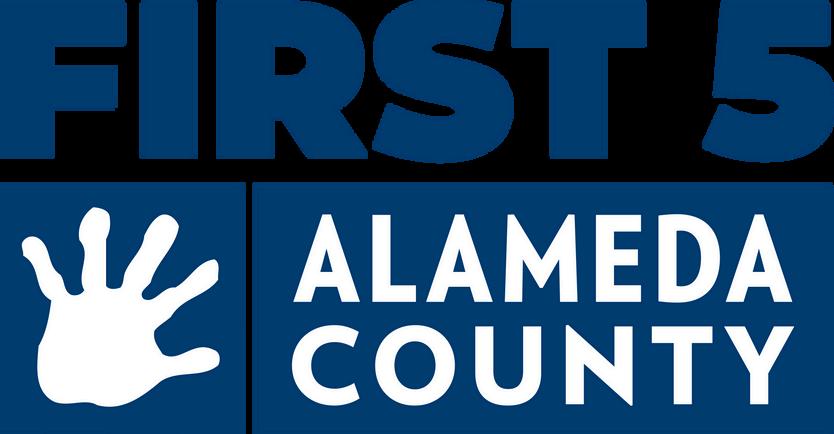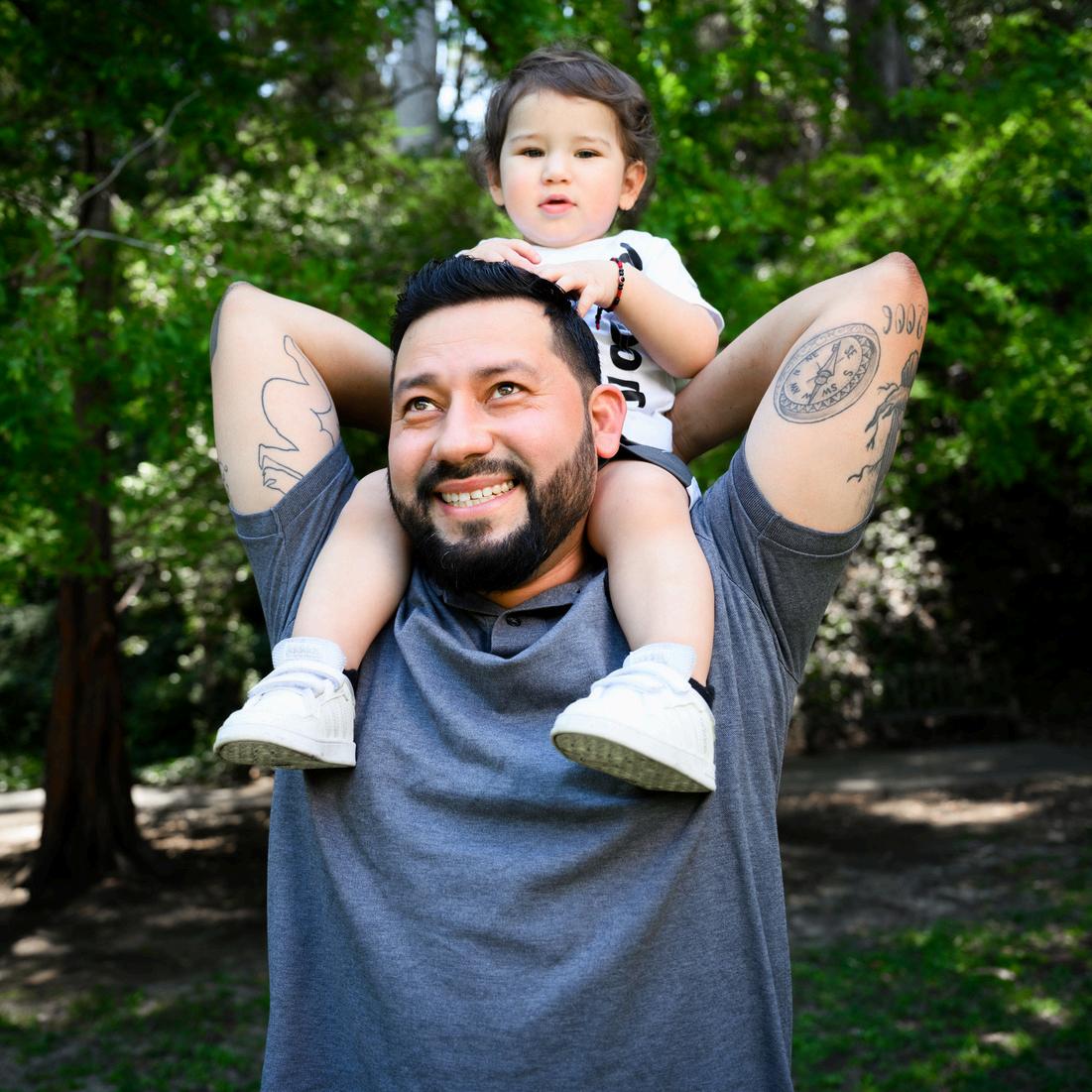

POLICY AGENDA TO ADVANCE EQUITY 2025


INTRODUCTION

FIRST5ALAMEDACOUNTY(FIRST5)WASESTABLISHEDIN1998BY CALIFORNIA’SPROPOSITION10.
Our“NorthStar,”thepopulationresultthatguidesourwork,isthatallchildrenarereadyforkindergarten. Weareevolvingtheearlychildhoodsystemusinga“wholecommunity,wholefamily,wholechild”policy andprogrammingapproach,andworkattheintersectionofracial,economic,climate,housing,andhealth justicetoensurethatpoliciesandsystemssupporttheconditionschildren,families,andcommunitiesneed tothrive Systemsbuildingeffortsrequiredeepinvestmentsandtime Toscaleeffectiveprogramsand promoteequitablepolicies,weleverageinsightsfromourworktoinformsystemicsolutionsacrosslocal, state,andfederallevelsinfourkeyareas:Neighborhoods,Family,Health&Well-Being,andLearning& Care Thisapproachaimstoachievelong-termstabilityandsustainabilityforfamiliesandcommunities.
LONG-TERMSUSTAINABILITYOFCALIFORNIA'SEARLYCHILDHOODSYSTEMOFCARE
First5agenciesinCaliforniafacesignificantchallengesduetodecliningtobaccotaxrevenues,risking programcutsandlayoffs.Thisthreatenstheearlyinfrastructurebuiltoveryears.WhileFirst5Alamedais partiallyprotectedbytwolocalchildcaremeasuresthatweadminister—TheOaklandChildren’sInitiative (MeasureAA)andTheChildren’sHealth&ChildCareInitiativeforAlamedaCounty(MeasureC)—we advocateforstatewidesustainabilityefforts.Theseincludeexploringnewfundingstreamsand partnershipstoensurecontinuityofessentialearlychildhoodservices,strengtheningthefoundationfor California'schildrenandfamilies.
FIRST 5 ALAMEDA COUNTY 2025 POLICY PRIORITIES
NEIGHBORHOODS
FAMILY,CAREGIVER&COMMUNITYLEADERSHIP
Promotethelivedexperience,voice,leadership,andshareddecision-makingpowerof communities,families,andcaregiversinpolicydevelopment,programdesign,research, evaluation,datacollection,andstorytelling.
► Community-Centered Data & Research
Recognize families and communities as conveners, storytellers, and owners of data in the work to advance datadriven decision-making
► Parent, Caregiver & Community Voice & Vitality
Elevate the strengths and social capital of historically underrepresented families and communities, including those with low income and Black, Indigenous, and People of Color (BIPOC), immigrant, refugee, undocumented, LGBTQ+, and unhoused families
THRIVINGNEIGHBORHOODS
Increasecommunity-drivenplace-basedinvestmentsandequitableeconomicdevelopment opportunitiesthataddressstructuralracismanddisproportionateratesofpoverty.
► Neighborhoods Ready for School Resource community partnerships and collaborations to advance community-led place-based strategies, like our Neighborhoods Ready for School Initiative and Family Resource Centers, that support the multi-generational needs of families, support cross-system service coordination, and inform policy advocacy and service delivery.
► Family Friendly Communities
Increase investments in a sustainable built environment and public infrastructure to address equitable access to public transportation, affordable housing, safe parks and green spaces, free and affordable recreation activities, promotion of eco-friendly land use and development, and to support community and public safety.
► Equitable Community Economic Development
Increase job creation and workforce development opportunities with living wages, strengthen support for small businesses, and promote the use of public funds to provide economic opportunities for neighborhood residents
► Climate & Environmental Justice
Disrupt and mitigate the impacts of gentrification, climate change, and extractive and exploitive economic policies in low-income and BIPOC communities by prioritizing policies and investments that support the local infrastructure and adaptations of environments children and families frequent
FAMILY
FINANCIALSTABILITY
Advanceopportunitiesthatsupportfairincomesandincreaseeconomicsupportsforfamiliesto meettheirbasicandconcreteneeds,includingfood,housing,andtransportation,andcreatea safe,healthy,andenrichinghomeenvironment.
► Income & Basic Needs
Promote opportunities to advance economic justice and increase economic supports for families such as child tax credits, Universal Basic Income, improvements to the public safety net, rental, utility, transportation assistance, nutritious affordable food, diapers and menstrual products, apprenticeships, and free and affordable secondary and technical education
► Safe & Affordable Housing
Partner with community, private, and public partners to increase supports for unhoused pregnant people, families, and essential workforce. Protect and increase the supply and access of affordable and family-friendly housing options.
► Asset Building, Debt Relief & Credit Building
Support policies and programs that promote families’ multi-generational financial stability and economic mobility such as college savings programs and fair credit and lending practices
► Digital Equity
Increase equitable access to reliable, high-speed internet, devices to facilitate learning and economic development, and digital literacy supports
COORDINATEDSYSTEMS
Strengthenfamily-servingsystemstofacilitateaccessanddeliveryofservicesthatsupportthe healthandwell-beingoffamiliesthroughculturallyandlinguisticallyresponsiveservicesthat mitigatechildhoodadversityandsupportthediversedevelopmental,physical,andsocialneedsof youngchildrenandtheirfamilies.
► Father & Father-Figure Engagement
Promote the adoption and integration of the Father-Friendly Principles, Healthy Relationship Principles, and father and father-figure specific services across community programs and public systems.
► Child Welfare System
Promote family unity through anti-racist/classist policies and practices that center family and child outcomes.
► Incarcerated Families
Support children and families impacted by parental incarceration through policies such as those that increase reentry resources for families with young children and those that help families stay connected
HEALTH & WELL-BEING
COORDINATED&PREVENTATIVEHEALTHCARE
Createaseamless,accessible,andcoordinatednetworkofcarethatpromoteschildandfamily physicalandmentalhealthandwell-beingthroughculturallycongruentservicestoaddress physical,behavioral/mental,developmental,dental,andsocialdeterminantsofhealth.
► Prevention & Early Identification (Screening)
Scale and sustain strategies that address the unique needs of young children through continuous Medi-Cal eligibility for children 0-5, regular health screenings and well-child visits, early identification of developmental concerns, child development education, and family supports.
► Coordinated Network of Care
Support effective strategies like DULCE, Family Resource Centers, and Help Me Grow that support families with access and navigation to culturally and linguistically responsive services and resources to address growing early childhood mental health concerns
► Supported Workforce
Promote workforce strategies like fair compensation, safe and supportive workplaces, access to professional development, and health and well-being benefits to grow, support, and diversify community and family-serving health workforce that are critical for the delivery of culturally and racially congruent care, e g , community health workers/ promotoras/ representatives, doulas, midwifes, certified lactation consultants, peer supporters, nurses, physicians, and behavioral/mental health workers
BIRTHEQUITY&REPRODUCTIVEJUSTICE
Promotetherighttomaintainpersonalbodilyautonomyandchampionsafe,healthy,andjoyous pregnancy,birth,andpostpartumoutcomesforBlack,PacificIslander,andIndigenouswomen andbirthingpeople.
► Workforce Development & Sustainability
Support, expand, retain, and nurture the Black, Pacific Islander, and Indigenous birth justice workforce that supports families before, during, and after pregnancy such as midwives, doulas, physicians, nurses, lactation professionals, peer community supports, and others
► Community-Based Strategies
Scale community-based strategies to disrupt inequities and disparities in birth outcomes such as lactation supports for Black, Pacific Islander, and Indigenous birthing people, Universal Basic Income, access to comprehensive perinatal and postpartum care, full spectrum doula supports, group prenatal care, maternal mental health supports, and collection and analysis of culturally relevant data related to birth disparities and associated research
► Amplify Black, Pacific Islander, & Indigenous Voices
Center the voices and needs of Black, Pacific Islander, and Indigenous women, birthing people, and their families to address racism as the root cause in adverse pregnancy and birth outcomes.
EARLY LEARNING & CARE
ACCESS&QUALITY
Increaseawarenessandaccesstoqualityearlycareandeducationoptionsofferedthrougha diversemixed-deliverysystemthatbuildsoneachchild’suniqueindividualandfamilystrengths andaffirmstheirculturalbackground,language(s),neurodiversity,andexperiences.
► Connection to Care
Support family access to information, resources, and support to choose their preferred early care and education experience for their children through a robust and coordinated family navigation, data, and technology system
► Kindergarten Transitions Supports
Expand access to year-round early care and education opportunities including kindergarten readiness activities and transition supports that are accessible to families within their community such as play groups, mental health supports, basic needs, and license exempt care such as family, friend, and neighbor providers
► Facilities, Land Use & Capital Investments
Leverage opportunities and increase investments to support land use and capital investments for renovation, repair, expansion, and new construction of early learning facilities; co-location of child care facilities within new housing developments; and targeted strategies to address child care shortages, mediate and ameliorate persistent inequities in access to care, and improve the long-term financial well-being of the early care and education community
► Family Centered Care
Promote cross-system communication, collaboration, and partnerships between the home, informal care settings (e.g., Family, Friend, and Neighbor care), early care and education professionals, community programs, and schools to support family access to care and health and well-being supports.
WORKFORCE
Leverageanddeepeninvestmentstostabilize,strengthen,andexpandthediverseearlycareand educationworkforcethroughfaircompensation,safeandsupportiveworkplaces,business support,accesstoprofessionaldevelopment,andhealthandwell-beingbenefits.
► Early Childhood Apprenticeship
Leverage local, state, and federal employment funding to cultivate a diverse, well-qualified, and sustainable pipeline of early care and education professionals through programs like the Alameda County Early Education Apprentice Program, a public-private partnership that leverages CalWORKs employment dollars, Proposition 10 revenues, and philanthropic funds
► Quality Jobs & Well-Being
Support advancements in fair compensation, opportunities for career advancement, professional development, quality enhancement, a supportive work environment, and a reasonable workload for early care and education professionals through supports like mental health consultation, the Child and Adult Care Food program, and business supports.
► Learning & Career Advancement
Promote workforce development opportunities such as reflective supervision for professionals working with children and families, coaching and mentoring programs, and scholarships for apprentices to obtain licenses, permits, AAs, BAs, and graduate degrees
